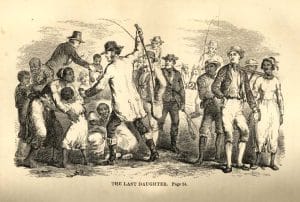Prompted by controversy surrounding Policy 720: Restrooms and Locker Room Facilities, extensive public comment occurred during Wednesday’s Pennridge Policy Committee meeting.
Prior to opening public comment, School Board President Ron Wurz made an announcement:
“We are ready to debate policy 720. However, with the pending Title IX legislation, debating a policy that may well be taken off our hands either by the upcoming Title IX changes or the courts, we would therefore like to move at the next board meeting to retire the current policy effective August 1st, 2024. This will allow our administration to make shifts as a new legal precedent comes down through the year, and we need to remain in compliance with the law.”
Wurz added that the district must stay compliant with Title IX to continue receiving “over $6 million of funding every year from the federal government.”
“It’s important to note that on April 19th, 2024, the Federal Department of Education released a comprehensive 1,577-page revision of its Title IX regulations, which substantially revised its guidance regarding the use of bathrooms by transgender students,” said Superintendent Angelo Berrios.
“These revisions are joined by a recent letter by the Pennsylvania Department of Education, affirming the same approach. These regulations will be effective August 1st, 2024, and will be enforced by the federal government and the Commonwealth.”
READ: WWDB Radio Features Pennridge Transphobia On Its ‘Don’t Back Down’ Program
Some in the audience disputed the information Wurz and Berrios provided.
“Title IX has not changed despite what you’re saying here. Title IX is law and requires legislation to change it,” claimed Perkasie Borough resident and Republican Kim Bedilion.
Except she is wrong.
Title IX is a regulation, not a law, and its revision does not necessitate an act of Congress. The U.S. Department of Education released the final regulations for Title IX on April 19, 2024, with an effective date of August 1, 2024.
“The final regulations restore and strengthen vital protections for students, and provide schools with information to meet their Title IX obligations while offering appropriate discretion and flexibility to account for variations in school size, student populations, and administrative structures,” said the U.S. Department of Education in a press release dated April 19, 2024. “The final regulations also require schools to take prompt and effective action when notified of conduct that reasonably may constitute sex discrimination in their education programs or activities.”
Chances are that most of us have, in one way or another, benefited from the protections and opportunities provided by the legal framework established by the 14th Amendment of the Constitution.
The 14th Amendment, passed by a Republican Congress following the Civil War and ratified in 1868, has significantly influenced federal regulations and Supreme Court decisions in the decades that have followed. Its Equal Protection Clause and Due Process Clause provide equal treatment under the law and ensure fundamental rights and protections.
An excellent example of the safeguards afforded by this amendment would be the prohibition of discriminatory actions against pregnant women in the workplace.
READ: Civil Rights Complaint Filed Against Pennridge School District
Many key laws and regulations rely upon the protections offered by the 14th Amendment, some of which include:
– Civil Rights Laws: the Civil Rights Act of 1964 and other legislation prohibiting discrimination on the basis of race, color, religion, sex or national origin in employment, education, and housing.
– Voting Rights Laws: the Voting Rights Act of 1965 that safeguards the right to vote and bars discriminatory voting practices that would disenfranchise individuals based on race or ethnicity.
– Equal Employment Opportunity Laws: The Equal Employment Opportunity Commission (EEOC) prohibits employment discrimination based on race, color, religion, sex, national origin, age, disability, or genetic information.
– Education Laws: Title VI of the Civil Rights Act of 1964 prohibits discrimination on the basis of race, color, or national origin in programs and activities receiving federal financial assistance and Title IX of the Education Amendments of 1972 that prohibits sex discrimination in education programs and activities.
– Privacy Rights Laws: The right to privacy such as those governing reproductive rights and LGBTQIA rights, are influenced by this constitutional principle.
Privacy rights are now under attack, as witnessed by the overturning of Roe v. Wade by the Supreme Court’s ultra-conservative justices, which is of tremendous concern.






